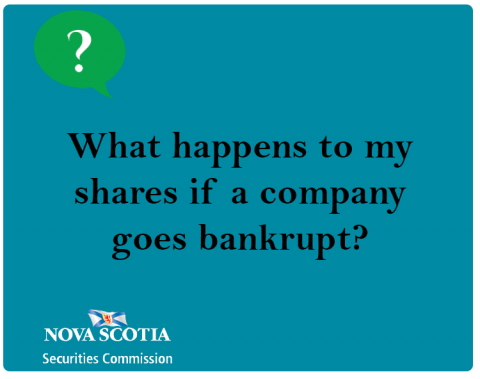Submitted by nsscadmin on

During these times of economic turmoil one of our reader’s wondered what would happen to their shares if the company they’re invested in files for bankruptcy?
The incredibly short answer to that question is that your shares would most likely be worthless and unsellable. If the company becomes bankrupt and is no longer in business, there will be no market for their shares as they no longer have any value.
As a shareholder you may be entitled to company assets, however you’re near the end of the line of those entitled to the company’s assets which may net you very little or possibly nothing for your shares.
When a company files for bankruptcy and liquidates, they must sell all their assets to cover their debts. First in line to collect any money raised from selling these assets are creditors. Creditors are people the company owes money to such as the government, financial institutions and other creditors such as bond holders, or other businesses like suppliers.
Then comes shareholders. However, not all shareholders are considered to be equal. Preferred shareholders are ahead of common shareholders in the line of those looking for company money.
If, after everyone has been paid, there is any money left how much money shareholders will receive is based on their proportional ownership in the business. For example, let’s say shareholder A’s shares equal a 0.5 percent stake in the business. What we mean is out of all the shares issued by the company Shareholder A owns 0.5 percent. When it comes time to pay shareholders there is $1 million to distribute. Shareholder A is entitled to 0.5 percent of this money or, $5,000.
